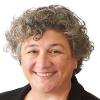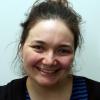Sonya Schoenberger, Stanford University, "Enclosing the Sea: Establishing Large Ocean Territories in the Cold War Pacific"
Historians of science have recently begun to examine role of the oceans themselves in human activity, not just as a pathway between places that matter, but as a place with a history of its own, with which humans have always interacted. In turning their gaze to the other two thirds of the earth's surface, scholars thus acknowledge the oceans as a changeable and changing place, affecting and affected by human activities. This "oceanic turn" is playing out in the humanities broadly, as scholars in many disciplines explore the role of the oceans in human endeavors including labor, culture, politics, industry, law, or literature. Spanning many different periods and regions around the world, this group will examine broad conceptions of oceans across history.
Consortium Respectful Behavior Policy
Participants at Consortium activities will treat each other with respect and consideration to create a collegial, inclusive, and professional environment that is free from any form of discrimination, harassment, or retaliation.
Participants will avoid any inappropriate actions or statements based on individual characteristics such as age, race, religion, ethnicity, sexual orientation, gender identity, gender expression, marital status, nationality, political affiliation, ability status, educational background, or any other characteristic protected by law. Disruptive or harassing behavior of any kind will not be tolerated. Harassment includes but is not limited to inappropriate or intimidating behavior and language, unwelcome jokes or comments, unwanted touching or attention, offensive images, photography without permission, and stalking.
Participants may send reports or concerns about violations of this policy to conduct@chstm.org.
Upcoming Meetings
Tuesday, November 18, 2025, 2:00 - 3:30 pm EST
Tuesday, December 16, 2025, 2:00 - 3:30 pm EST
SaeHim Park, Chinese University of Hong Kong
**NOTE: SPECIAL TIME! 8-9:30 PM EST!*
Tuesday, January 20, 2026, 2:00 - 3:30 pm EST
Karen Pinto, University of Colorado-Boulder, “All the World’s an Island: A Taussigian Reading of Ancient, Medieval, and Early Modern Maps with an Islamicate Twist”
Tuesday, February 17, 2026, 2:00 - 3:30 pm EST
TBA
Tuesday, March 17, 2026, 2:00 - 3:30 pm EDT
TBA
Tuesday, April 21, 2026, 2:00 - 3:30 pm EDT
TBA
Tuesday, May 19, 2026, 2:00 - 3:30 pm EDT
TBA
Tuesday, June 16, 2026, 2:00 - 3:30 pm EDT
TBA
Tuesday, July 21, 2026, 2:00 - 3:30 pm EDT
TBA
Past Meetings
-
Katherine Sinclair, Rutgers University, " 'A Magnificent Natural Zoo': Domesticating the French Kerguelen Islands."
-
Alison Glassie, Mahindra Humanities Center, Harvard University, "Ninety Perfect Sealskins: Toni Morrison’s Counter-history of Sealing."
-
Beatriz Martínez-Rius, Sorbonne Université, "International science, salt domes, and oil: deep-sea drilling in the Mediterranean."
-
Magdalena Grüner, Universität Hamburg, "Else Bostelmann’s Abyssal Visions and the Ocean-Surreal"
-
Emily Hutcheson, University of Wisconsin-Madison, "Seeing Ecologies of the Deep and Shallow Seas: Local Labor and Knowledge in the Malay Archipelago, 1899-1900"
-
Judy Johns Schloegel, Independent Scholar, "Instituting Biology in the Great Lakes: Scientific Survey Work and Inland Seas Maritime Culture, 1893-1903."
-
Penelope K. Hardy, University of Wisconsin-La Crosse, seeks your input on her new project: a four-volume edited primary source collection tentatively titled Knowing the Oceans, 1790-1914: A Global Documentary History.
-
Ann Elias, University of Sydney, chapters 2, 4 and 6 from her book Coral Empire: Underwater Oceans, Colonial Tropics, Visual Modernity (Duke University Press, 2019)
*NOTE SPECIAL TIME*
-
Presenting at a conference this summer? Attended a really good panel? Come tell us about it! We'll meet in July for a meet-and-greet and conference round-up. Bring your conference reports, publication announcements, and news for this informal get-together.
-
We will meet for a wrap-up/discussion of the year's meetings, asking members to identify together themes and questions that arise organically from the papers we've discussed so far. We'll also start planning for the fall; if you have ideas, requests, or questions about presenting a paper to the working group, bring them!
-
Jennifer Hubbard, Ryerson University, "Rescuing the World: The Food and Agriculture Organization and the Quest for Efficient Scientific Administration in World Fisheries"
-
Katharina Steiner, University of Wisconsin-Madison, "Changing Audiences, Changing Meanings: Haeckel’s Copepods and Biology’s Popular Culture"
-
Samm Newton, University of Wisconsin-Madison, "Pteropods Realized: From Bio-indication to Bio-inspiration"
-
Larrie Ferreiro, George Mason University, "The Technology of Armed Oceangoing Ships and the Rise of Overseas Empires"
-
Emily Hutcheson, University of Wisconsin-Madison, "'So-called' coral reefs: The Global Circulation of Algological Knowledge through Imperial and Scientific Networks 1896-1930" (from her dissertation in progress)
-
Tamara Fernando, University of Cambridge, "Seeing like the Sea: a Multi-Species History of Labour, Capital and Science Underwater at the Pearl Fishery of Ceylon 1800-1925"
-
Will Scates-Frances, Australian National University, "Captain Vanderford's Rule" (from his dissertation "Faces of Nature: The Race Thinking of Charles Pickering on the United States South Seas Exploring Expedition 1838-1842")
-
Sean Fraga, University of Southern California, "Settler Steamboats: Mobility, Settler Colonialism, and Steam Power in the Terraqueous Pacific Northwest, 1846–1872"
-
Vaughn Scribner, Central Arkansas University, selections from his new book Merpeople: A Human History (Reaktion Books, 2020)
-
Christine Keiner, Rochester Institute of Technology, selections from her new book Deep Cut: Science, Power, and the Unbuilt Interoceanic Canal (University of Georgia Press, 2020).
Pagination
- Previous page
- Page 3
- Next page
Group Conveners

Max Bridge
I am a PhD Candidate in History at Brown University. My disseration - "Oceanic Listening" - explores the environmental and sensory history of cetaceans and underwater sound over the past 200 years, covering topics such as whaling, echolocation research, and the popular culture of whale song. I am also broadly interested in disability history and disability studies, including their intersections with environmental history.

Penelope Hardy
Penelope K. Hardy is a historian of science, technology, and medicine and an associate professor at the University of Wisconsin-La Crosse. She studies the historical intersection of technology and the ocean sciences. Her current book project examines a series of nineteenth- and twentieth-century ocean-going research vessels and the cultures and practices surrounding their use. She is a vice president of the International Commission of the History of Oceanography, is vice president for research and publications of H-Net, and helped to found H-Oceans.

Daniella McCahey
Daniella McCahey is an Assistant Professor at Texas Tech University, where she primarily teaches on British history and the history of science. She studies the relationship between science and the environment in Polar Regions, especially islands, coasts, and ice shelves. She is the co-author of Antarctica: A History in 100 Objects (Bloomsbury 2022).